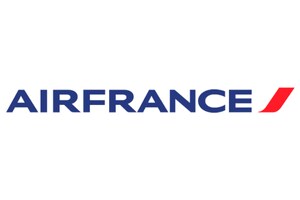AIR FRANCE
Assessing Talent to Ensure Safety and Efficiency in the Cockpit
Sector : TRANSPORT • Employees : +10,000

"We are not looking for a stereotypical profile of the 'perfect pilot'. Our goal is to assess behaviours that are either suitable or, on the contrary, inadvisable for communication that must preserve safety and efficiency in the cockpit."
Nathalie Pain
Psychologist, formerly in charge of Pilot Selection at AIR FRANCE
Air France has always placed the utmost importance and care on the selection of its pilots. The objective of the recruitment process is to obtain the clearest possible "picture" of the candidate in terms of personality, professional behaviour and skills, explains Nathalie Pain, Psychologist, formerly in charge of Pilot Selection at Air France.
Obtaining the clearest possible picture of the candidate
To do this, three spheres are explored: cognitive resources (intellectual, memory, psychomotor skills), behavioural resources (personality, personal resources) and conative resources (motivations). Psychometric and psychomotor tests are used to assess the cognitive sphere. These different tools metaphorically reproduce the tasks actually performed during flight operations.
Once these tests are successfully completed, the candidate moves on to the second part of the selection process: the evaluation of professional behaviour, based on personality, the personal resources they can mobilize, and their motivation. This second stage consists of three phases: personality inventories, a collective situational test, and an individual interview.
A proactive hiring approach to select the right candidates
The personality inventories we use are the Sosie and TD-12 published by Pearson TalentLens. Based on the answers given by the candidate to describe themselves, we formulate hypotheses about their way of functioning and their motivational drivers.
These hypotheses are shared with the candidate at the end of the individual interview. This is followed by a discussion which often proves to be highly insightful, both for the evaluators and for the candidate himself, who is frequently surprised by how closely the results align with their personality.
The collective situational test allows us to observe how the candidates implement their intellectual skills and their relational modalities in a concrete teamwork situation.
We are not looking for a stereotypical profile of the “perfect pilot.” Our goal is to evaluate behaviors that are either appropriate or, conversely, contraindicated for communication that must ensure safety and efficiency within the cockpit.
These observations will be put into perspective with the candidate’s statements during the final phase, the individual interview, during which we also verify the alignment of the candidate’s professional project with the role of pilot at Air France.
Welcoming candidates in a supportive atmosphere
The selection panel always includes an expert pilot and a psychologist. Each evaluator uses a standardized observation grid and independently develops their assessment, which is then presented to the recruitment committee. Beyond the tools we use - which are a valuable aid in our recruitment process - we believe it is essential to welcome candidates in a supportive and caring atmosphere. This allows us to get as close as possible to the candidate’s true personality.
Given the significant responsibility inherent in the pilot profession, we ensure that the selection process enables us to gather as much essential information about the candidate as possible. Since any doubt always benefits the company, it sometimes happens that candidates who might have met our expectations are not selected. However, we hope that, regardless of the outcome, the experience has also been beneficial for the candidate in terms of self-awareness.